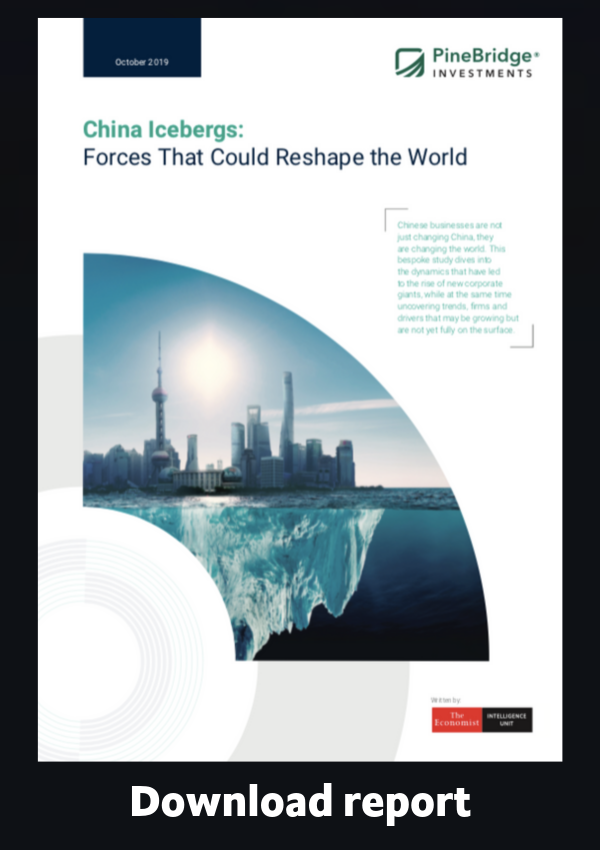China icebergs: Forces that could reshape the world is an Economist Intelligence Unit report, sponsored by PineBridge Investments, that examines hidden strengths in the Chinese economy—“icebergs”—that existing and potential investors into the world’s second-largest economy should be watching.
China’s boom has helped fuel global growth, but it has also raised the country’s debt levels and prompted questions about economic endurance and global impact. Trends may be visible on the surface, but, like an iceberg, bigger implications lie underneath. To get a better understanding, this report aims to go below headline numbers and explore the nation’s commercial strengths and potential weaknesses. Key takeaways include:
- The economy is shifting, and consumers are the driving force. Liberalisation of the private sector is shifting China from a state-backed to a consumption-led economy, which could fully transition by 2030.
- Chinese technological advances are compounding. From mobile internet to fintech to artificial intelligence and flying cars, Chinese firms are innovating and advances are feeding into the local economy as well as going global.
- New growth centres are emerging—exponentially. China’s lower-tier cities are growing fast and catching up to the mega-cities in terms of technology, commerce and infrastructure.
What does the emergence of middle-class, digital-savvy consumers, the improving mobility of work and the rapid urbanisation mean for China's economy? We talked to Mr. Chibo Tang from Gobi Partners.






